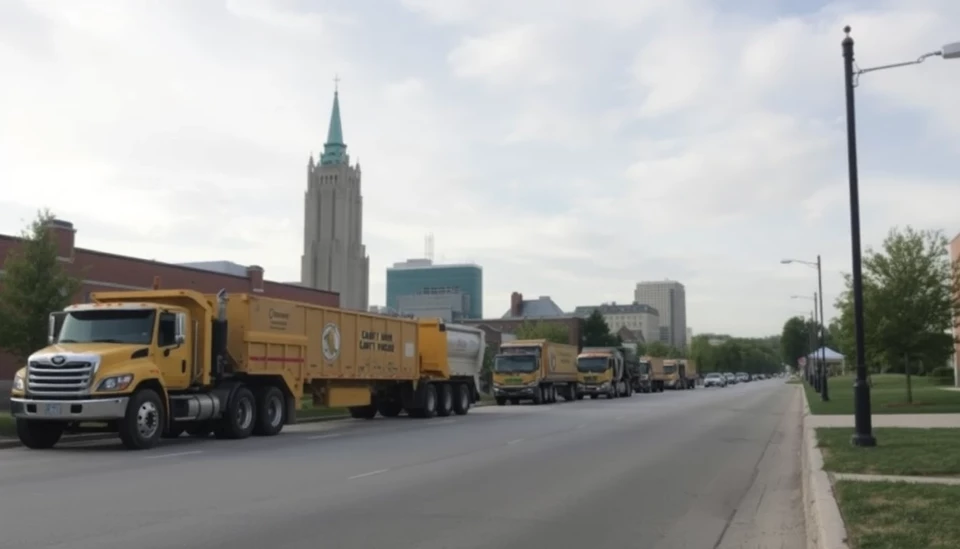
In a progressive move toward enhancing environmental sustainability, the city of East Lansing has embarked on an innovative initiative that harnesses the power of artificial intelligence (AI) to optimize its trash and recycling management systems. This forward-thinking project aims to significantly reduce waste and enhance city services, demonstrating a commitment to making urban living more sustainable and efficient.
The partnership between East Lansing and technology firm Leduc seeks to address common challenges faced by municipalities in managing waste collections. As cities grow and urban populations increase, municipalities often struggle with the complexities of efficient waste management. By integrating AI into their operations, East Lansing hopes to streamline processes, improve service delivery, and ultimately promote a cleaner environment for its residents.
The AI system is designed to analyze historical waste data, track patterns in garbage collection, and predict peak times for waste disposal. By employing predictive analytics, the city can better plan its collection routes, ensuring that trucks are dispatched at optimized times that coincide with community needs. This not only promises to improve efficiency in operations but also has the potential to reduce fuel consumption and greenhouse gas emissions from waste collection vehicles.
One of the most exciting aspects of this initiative is its capacity to enhance the recycling program. Equipped with advanced algorithms, the AI can identify common items found in general waste that could have been recycled. This capability allows for targeted public awareness campaigns to educate residents about recycling practices, ultimately leading to increased recycling rates and less waste ending up in landfills.
The city's decision to adopt this technology comes in the wake of a growing trend among local governments to utilize smart technologies that contribute to sustainable development goals. East Lansing aims to set an example for other cities considering similar implementations, showcasing how technology can provide practical solutions to age-old problems of waste management.
As the pilot program unfolds, city officials anticipate invaluable data and insights that can inform future enhancements in waste collection strategies. Local leaders believe that investing in smart technologies will yield long-term benefits for both the environment and the quality of life for residents.
Community feedback and participation will be pivotal throughout the implementation process. East Lansing is encouraged to engage its residents in discussions about the importance of sustainability and the role each individual plays in effective waste management. The city is optimistic that with the right education and tools, residents will feel empowered to contribute positively to environmental efforts.
In conclusion, East Lansing's strategic initiative to apply AI in waste management reflects a growing awareness of the need for innovative solutions in the face of expanding urban challenges. This endeavor not only aims to foster better waste practices but also aspires to create a more sustainable future for all its residents.
As cities around the world look to reduce their carbon footprint and embrace smart technology, East Lansing stands at the forefront of this important movement, promising a cleaner and greener environment through the harnessing of AI. The impact of this project could extend beyond local boundaries, potentially inspiring other communities to adopt similar measures in the battle against waste.
Follow East Lansing's journey in transforming waste management through technology and join the conversation about sustainable living.
#EastLansing #WasteManagement #AI #Sustainability #Recycling #SmartCities #EnvironmentalImpact
Author: Victoria Adams




